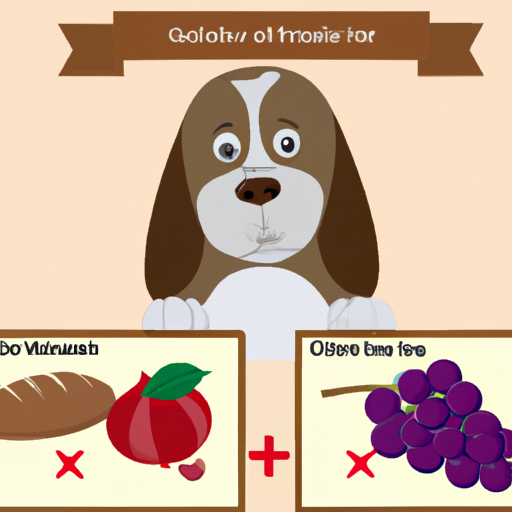As a dedicated caregiver to your furry companion, it’s imperative to be informed about the dietary restrictions your pet faces. This article serves as a comprehensive guide to foods your dog should avoid for a healthy and long life.
1. Chocolate and Caffeine
Chocolate and caffeine are two substances that are toxic to dogs. They contain theobromine and methylxanthines, compounds that dogs cannot metabolize efficiently, leading to severe health complications.
- Dark Chocolate: Contains the highest levels of theobromine.
- Milk Chocolate: Contains lower levels of theobromine but still harmful.
- Coffee: High amounts of caffeine can lead to rapid breathing, restlessness, and heart palpitations.
| Substance | Level of Toxicity |
|---|---|
| Dark Chocolate | High |
| Milk Chocolate | Moderate |
| Coffee | High |
2. Grapes and Raisins
Despite their small size, grapes and raisins can cause sudden kidney failure in dogs. This includes all types of grapes (red, green, seedless) and products derived from them.
- Fresh Grapes: Just a small amount can make a dog ill.
- Raisins: More concentrated, hence more dangerous.
3. Onions and Garlic
Onions and garlic, while flavorful to us, are extremely harmful to dogs. They contain compounds that can cause anemia by destroying your dog’s red blood cells.
- Raw Onions/Garlic: Most harmful and should always be avoided.
- Cooked Onions/Garlic: Still potentially dangerous, though less so than raw.
4. Alcohol and Yeast Dough
Alcohol and yeast dough can have devastating effects on a dog’s system. Signs of poisoning include difficulty breathing, decreased coordination, and vomiting.
- Alcohol: Can lead to alcohol poisoning.
- Yeast Dough: Can expand in the stomach causing pain and potential rupture.
5. Xylitol
Xylitol, an artificial sweetener used in many products such as gum, candy, and baked goods, can cause insulin release leading to liver failure in dogs.
- Gum: Often contains xylitol, keep out of reach.
- Baked Goods: Always check labels before sharing with your pet.
Frequently Asked Questions
Q: Can dogs eat peanut butter?
A: Yes, but make sure it doesn’t contain xylitol.
Q: Is cheese okay for dogs?
A: In small amounts, cheese can be a great treat. However, some dogs can be lactose intolerant.
Q: Can my dog eat fish?
A: Yes, cooked fish is safe and can be beneficial. However, raw fish may carry harmful parasites.
Q: Are eggs safe for dogs?
A: Yes, fully cooked eggs are safe and nutritious for dogs.
Remember, when it comes to your dog’s diet, it’s always best to err on the side of caution. If you’re unsure about a certain food, consult with your vet before introducing it to your pet’s meal plan. Your vigilance will ensure your furry friend stays happy and healthy for many years to come.



